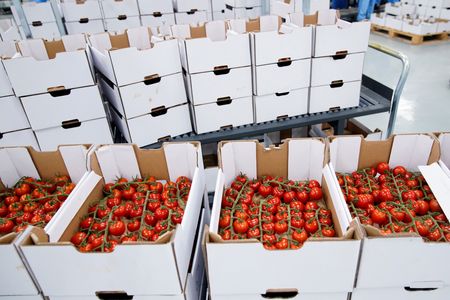SHANGHAI (Reuters) – The profitability surge of a Shanghai food supplier seeking a Hong Kong listing, disclosed in an exchange filing, gives a rare peep under the hood into a cohort of Chinese companies that have benefited from President Xi Jinping’s zero-COVID policy.
Pang Pang Xiang (China) Company Ltd saw its gross profit margin surge to more than 50% in January-May, compared with roughly 30% in 2019-2021, thanks to its government-mandated role to ensure food supplies during Shanghai’s COVID-19 lockdown, according to a document it published on Monday.
That contrasted with the shrinking margins, or even losses many businesses suffered during the two-month, city-wide lockdown.
The disclosure by Pang Pang Xiang, which attributed the spike in margins to supply shortages and surging demand during the lockdown, drew criticism from local bloggers and Chinese social media users this week.
“We ordinary people tried our best to understand when food became expensive during lockdowns,” commented one user on Weibo, China’s Twitter-like social media platform.
“We just didn’t know how profitable they were!”
The company was among those picked by the Shanghai government this year to guarantee the supply of agricultural products during the city’s lockdown of its 25 million residents between April and May.
“The typical supply chain during the lockdown was greatly disrupted, the result was a lot of pricing asymmetry as well as very high demand,” said Ben Cavender, managing director at China Market Research Group in Shanghai.
“This in turn allowed the company to dramatically improve margins over what they normally would be.”
Many Shanghai residents turned to community group-buying to procure essentials during the lockdown, where residents in one community band together to bulk buy groceries or meals from suppliers or restaurants.
Among COVID-related buying customers, group-buying contributed to roughly half of its revenue, with a gross profit margin of 74.7%, according to Pang Pang Xiang’s disclosure.
Pang Pang Xiang’s sales were impacted by the lockdown, however. Its revenue dropped 15% from a year earlier during the first five months, though gross profit jumped 35% due to higher margins.
Cavender said the firm’ margins were on the high end compared to what he has seen in the industry, and that the results will be very difficult to replicate going forward.
While the rest of the world is opening up, China has vowed to maintain its zero-COVID policy, with authorities continuing to stem outbreaks through lockdowns and mass testing. Some analysts believe the government will largely stick with the tough restrictions well into next year.
Since the end of China’s Communist Party Congress over the weekend, the execution of the zero-COVID policy “has been clearly stepped up in a rising number of cities, as containing COVID remains a key performance measure for local officials,” Nomura wrote in a note on Thursday, expecting strict curbs will continue until at least March, 2023.
Pang Pang Xiang said it will use the IPO proceeds for strategic acquisitions to expand market share, and to improve operation efficiency and scale up its business, without saying when the listing will likely happen, or how much it will raise.
(Reporting by Jason Xue and Brenda Goh; additional reporting by Samuel Shen; Editing by Kim Coghill)

